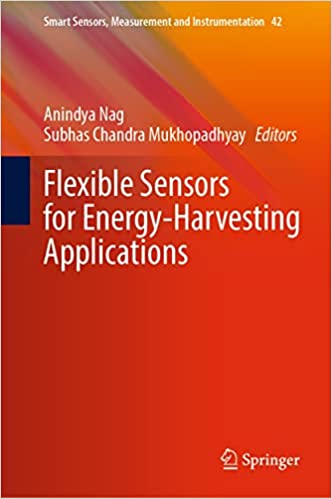
English | 2022 | ISBN: 3030995992 | 244 pages | True PDF EPUB | 66.06 MB
This book investigates the fabrication of different types of flexible sensors and their subsequent implementation for energy-harvesting applications. A range of techniques, including 3D printing, soft lithography, laser ablation, micro-contract printing, screen-printing, inkjet printing and others have been used to form the flexible sensors with varied characteristics. These sensors have been used for biomedical, environmental and healthcare applications on the basis of their performances. The quality of these flexible sensors has depended on certain types of nanomaterials that have been used to synthesize the conductive parts of the prototypes. These nanomaterials have been based on different sizes and shapes, whose quality varied on the basis of certain factors like crystallinity, shapes and sizes. One of the primary utilization of these nanotechnology-based flexible sensors has been the harvesting of energy where nano-generators and nano-harvesters have been formed to generate and store energy, respectively, on small and moderate magnitudes. Mechanical and thermal energies have been harvested on the basis of the piezoelectric, pyroelectric and triboelectric effects created by the formed prototypes. The work highlights the amalgamation of these sectors to spotlight the essence of these types of sensors and their intended application.
Links are Interchangeable - No Password - Single Extraction



